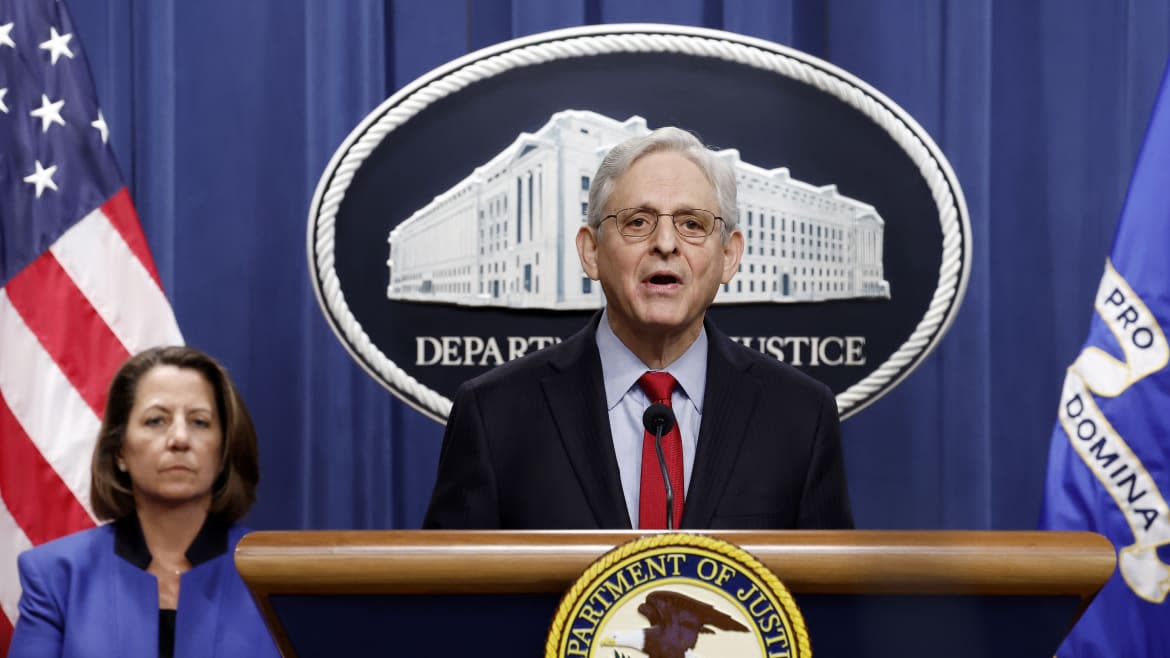Feds Accuse Apple of Monopolizing Smartphone Market

Apple illegally maintains a monopoly of the smartphone market by thwarting app development and making customers dependent on the iPhone, the Justice Department alleged in an antitrust lawsuit filed against the company.
The complaint accuses Apple of violating the Sherman Act by unfairly monopolizing smartphones, according to a press release by the DOJ. It was filed this week in the U.S. District Court of New Jersey by Attorney General Merrick Garland and 16 other state attorneys general.
“Apple illegally maintains a monopoly over smartphones by selectively imposing contractual restrictions on, and withholding critical access points from, developers,” the DOJ’s release reads. “Through this monopolization lawsuit, the Justice Department and state Attorneys General are seeking relief to restore competition to these vital markets on behalf of the American public.”
The DOJ alleges that Apple actively downgrades the functionality of third-party services, including app developers, to keep users on its own platforms. It does this to “extract more money from consumers, developers, content creators, artists, publishers, small businesses, and merchants, among others,” according to the department.
For instance, when an Apple user sends a text to a non-Apple user, the chat bubbles not only show up green but lose a number of other features, Garland said at a briefing Thursday.
Apple Slapped With Nearly $2 Billion Fine After Spotify Complaint
“The conversation is not encrypted, videos are pixelated and grainy, and users cannot edit messages or see typing indicators. As a result, iPhone users see rival smartphones as being lower quality,” Garland said.
The complaint named other antitrust practices such as blocking “super apps” that would make it easier for consumers to switch between smartphone platforms; suppressing mobile cloud streaming services to get users to purchase better hardware; and blocking third-party apps from tap-to-pay services, thinning competition to Apple’s own digital wallet service.
The iPhone remains the most popular smartphone in the U.S., according to analysts, with a market share of around 60 percent. That allows it to charge over $1,000 for the newest models and can take from developers up to 30 percent of an app’s cost on the app store.
In a statement, Apple warned the lawsuit would “hinder our ability to create the kind of technology people expect from Apple—where hardware, software, and services intersect.”
“This lawsuit threatens who we are and the principles that set Apple products apart in fiercely competitive markets,” a spokesperson for the tech company said.
The suit against Apple is the latest in a series of antitrust takedowns against the four major tech companies. Meta, Google, and Amazon have all faced antitrust suits from the feds in recent years. The tech giants have also come under scrutiny by regulators overseas, particularly in Asia and the European Union.
Get the Daily Beast's biggest scoops and scandals delivered right to your inbox. Sign up now.
Stay informed and gain unlimited access to the Daily Beast's unmatched reporting. Subscribe now.

 Yahoo News
Yahoo News 
